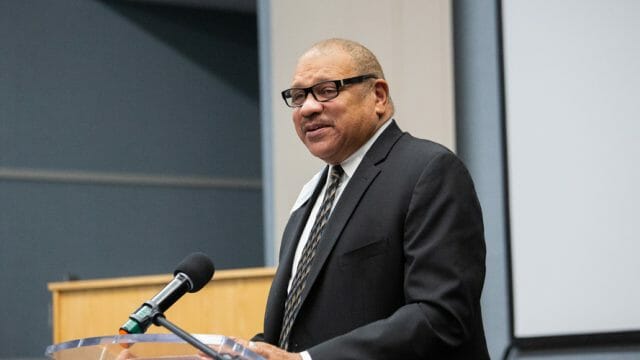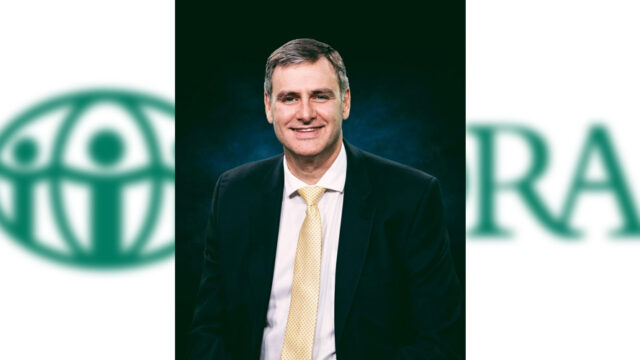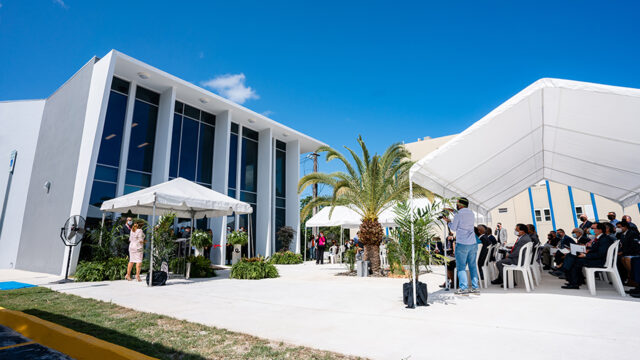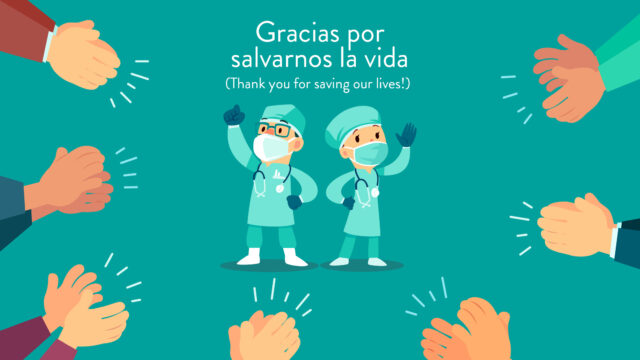That afternoon God dissolved both of our doubts—mine regarding my judgment and her sincerity, and hers regarding the failures of her former life.

The flashing light on the church’s answering machine drew me to the far side of the room. It was a hospital chaplain. An elderly woman with an Adventist background had been diagnosed with terminal lung cancer. She wanted to ensure she was right with God before the terrible disease took her life.
Scrawling Linda’s details onto a slip of paper, I began what would turn into a multiweek mission to contact her. She simply would not pick up the phone. I called the chaplain, who insisted on her interest, and her daughter, who said the same. The inability to actually speak with her, however, indicated otherwise.
While driving home on a Sabbath afternoon, I was impressed to try Linda one last time. She finally picked up the phone.
“You say you’re the Catholic priest?” She had not heard me correctly.
“No, ma’am, I am the local Seventh-day Adventist pastor. Your chaplain contacted me, and I’m hoping we can have a conversation about your request for baptism, if that’s still your intent.”
Linda was home with her daughter. Not wanting to miss the connection again, I quickly devoured my Sabbath lunch and drove to her place.
Linda and I discussed her life story, her relationship to Jesus, and her history with the Adventist Church. Although she knew all the doctrines, she had never chosen to surrender her life to Christ in baptism. She shared her joys and regrets as I shouted questions into her ear. Linda was so hard of hearing that her phone and television were cranked up to the highest setting, vibrating the very foundation of the building from her apartment on the fourth floor.
For more than a month my calls had been ringing through a phone she could not hear. After an hour in her little home, my voice was raw, but my spirits were up.
His grace was sufficient—both for Linda and a poor preacher like me.
An insurance policy?
Linda’s condition was so serious that we scheduled a midweek service, filled the baptistry, and planned a simple program for her and her family. That Wednesday I shared a heartfelt exposition of Luke 15 and the prodigal son, emphasizing that it’s never too late to come home. While I was speaking, Linda leaned over to her sister and said loudly, “I have no idea what he’s saying.” I wrapped up my remarks and prayed a blessing upon her, and we prepared to meet in the baptistry.
I had done my best to lead her to Jesus and clear her for baptism, but was she really sincere? Did she think this was just a cheap insurance policy to alleviate her eternal concerns? Questions lingered in my mind.
Linda was so weak she could not take the last step into the baptistry. With her consent I embraced her as gently as I could and lowered her frail body into the water. After baptizing her and raising her up out of the water, Linda stood silent as a statue, slightly hunched over with her eyes closed. “Linda . . . Linda, are you OK? Linda, how do you feel?” Those in the pews grew concerned. “I’m soaking wet!” she exclaimed. While Linda stated the obvious, it was the first time I had ever heard that at a baptism! After warm expressions and pictures taken to commemorate the occasion, I locked up the church and went home. Again, questions swirled.
We can never fully understand what is happening in someone’s heart, and these “thief on the cross” situations add a layer of complexity (see Luke 23:39-43). I always want to believe the best of someone’s intentions without diminishing the sacredness of the rituals Jesus Himself prescribed for us. It’s a delicate balance that we strike in good faith. I hoped I did the right thing.
Dissolving doubts
A couple of days later I reached out to Linda’s daughter. “Has anyone told you?” she asked.
“Told me what? Is everything OK?” Knowing Linda’s condition, I assumed the worst.
“Pastor, our mother can hear again!”
The next day I visited Linda to see for myself. Sure enough, I sat on her couch, and we had a conversation that didn’t strain my voice. The TV was turned to a reasonable volume. The phone rang, and she answered it. She was able to have a conversation with her grandchildren, perhaps hearing some of their voices for the first time.
“Linda,” I remarked, “it’s incredible that God has given you some of your hearing back.”
“Pastor,” she smiled, “He didn’t give me some of my hearing back. He gave me all of my hearing back!” Despite the miracle she experienced, Linda had persistent doubts. How could she know for sure that God had forgiven her sins? I opened my Bible to Luke 5, and together we read the story of Jesus’ compassion upon the paralyzed man whose friends were so eager to bring him before the Savior. After Jesus declared the man forgiven, the Pharisees accused Him of blasphemy. His response was just what Linda and I needed to hear:
“ ‘Which is easier, to say, “Your sins are forgiven you,” or to say, “Rise up and walk”? But that you may know that the Son of Man has power on earth to forgive sins’—He said to the man who was paralyzed, ‘I say to you, arise, take up your bed, and go to your house’ ” (Luke 5:23, 24).
That afternoon God dissolved both of our doubts—mine regarding my judgment and her sincerity, and hers regarding the failures of her former life. Together we prayed and, with tearful eyes, praised Him for His power to heal both physically and spiritually.
Within a few weeks I was officiating Linda’s funeral. That’s right—our good and gracious Lord chose not to heal her lungs from years of smoking cigarettes; He healed her ears. Instead of reversing her advanced illness, He allowed her to communicate with her loved ones as she prepared to say goodbye.
As I stood before Linda’s family, friends, and the chaplain who had referred me to Linda in the first place, I had the privilege of sharing about Jesus’ incredible love from Luke 5 and how He still has the power to heal and forgive. His grace was sufficient—both for Linda and a poor preacher like me.








